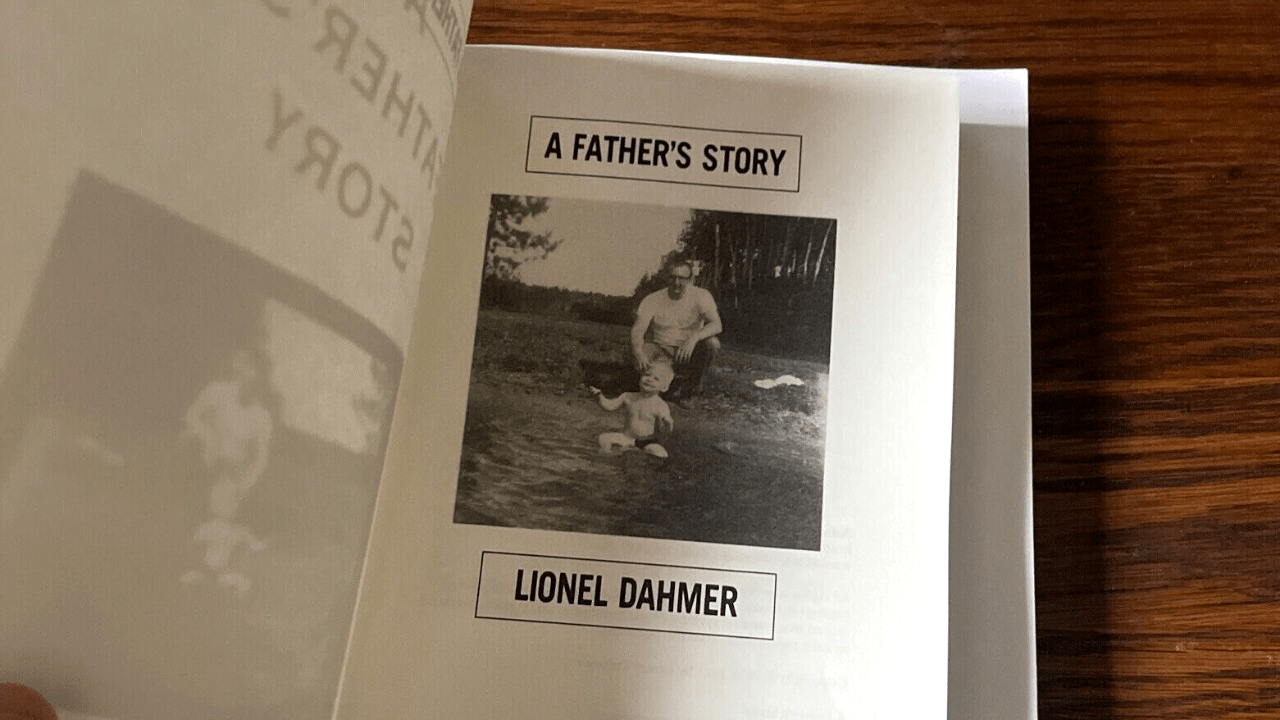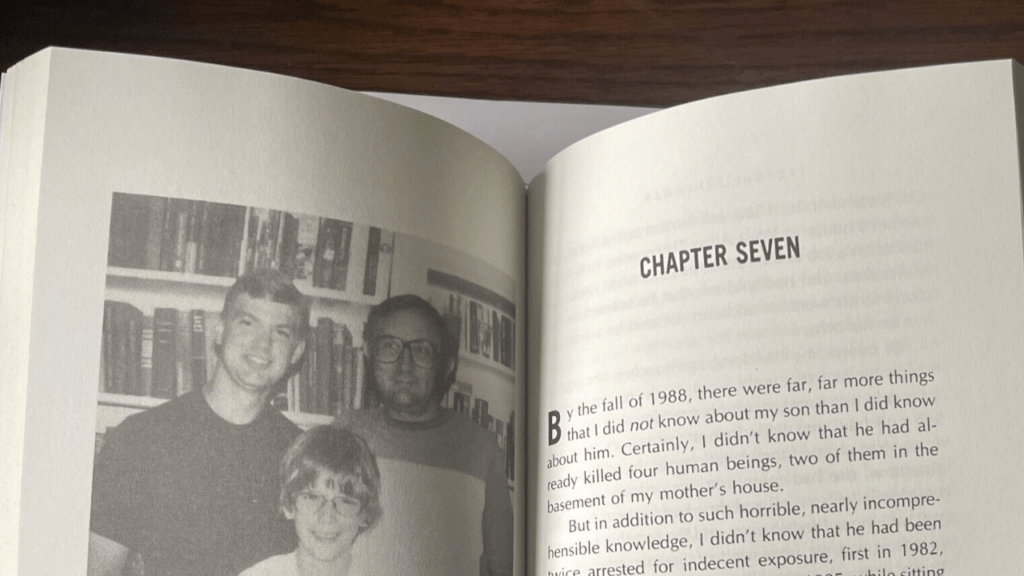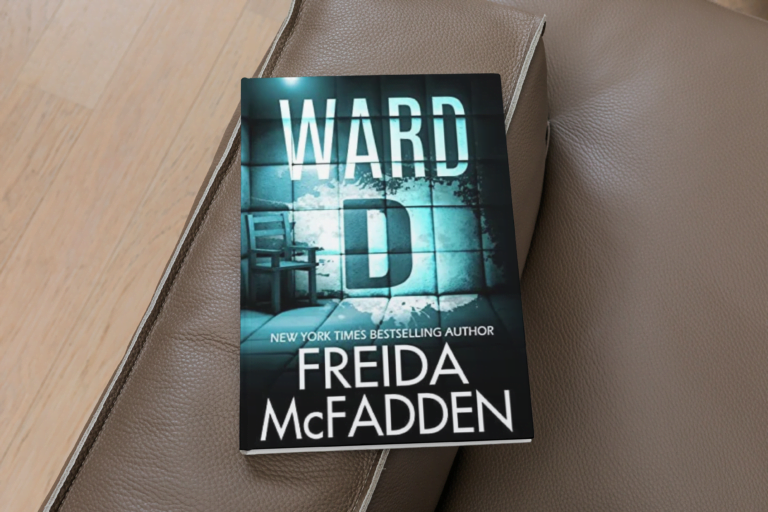A Father’s Story by Lionel Dahmer: How Not to Raise a Serial Killer

Reading the book written by Lionel Dahmer, the father of notorious serial killer Jeffrey Dahmer, is like asking, “Why on earth would you read that?”
My best friend asked me that, so I guess I should tell you what I am thinking. I can’t imagine why I would want to read this. Why, out of all the books in that secondhand store, would I choose to buy one written by Jeffery Dahmer’s father? And what the heck good reason do I have to finish it the very following day?
I don’t read many true crime books. Since I was unfamiliar with the genre despite having enjoyed Sebastian Junger’s The Perfect Storm so much, I probably started with A Death in Belmont. As I was passing through Utah at the time, I also read Under the Banner of Heaven by Jon Krakauer, having enjoyed his Everest novel, Into Thin Air, so much.
As I am currently residing in Wisconsin, I suppose I could claim that I read ‘A Father’s Story’ because I enjoy reading “local” works whenever possible. However, that can’t be the whole story.
Truth be told, it was the media attention surrounding the infamous murders committed by Jeffrey Dahmer in the early 1990s that piqued my interest in this book. However, I do not think it would have been worth my time or money to learn about such evil.
What really attracted me in was the promise of a fresh viewpoint on the whole thing, from the father who had raised the man who would become America’s most notorious monster. Now that I am a father myself, I find that it is instructive to observe and learn from the mistakes of other men in similar roles.

It was impossible to escape hearing about this case when it first broke, so I was not alone in being aware of it. The difficulty was that I was just a kid. When Jeffrey Dahmer was finally apprehended, I was just eight years old, and his mug shot was all over the news.
When he was finally found guilty and given a sentence of more than 900 years in jail, I was 9 years old. When this book was published by his father, I was 11 years old; that was the same year that Jeffrey was killed in prison by another inmate.
My parents kept me from seeing or hearing most of the gory details throughout. During those years, I heard enough Dahmer jokes from other kids to know that he was one horrific killer, even though they weren’t exactly gobbling up every bit of news that came out during the trials.
In the introduction, Lionel Dahmer says that he will give some of the book’s revenues to the families of the people his son killed. Thomas H. Cook then admits in the Foreword that some of the book’s earliest detractors had claimed that Lionel was just attempting to cash in on the book’s publicity, but that’s not what this book is about.
Reading the book, it becomes clear that the father wrote it out of need rather than want.
He expresses regret, disdain, and honest introspection. It’s obvious that some people will try to pin Jeffrey’s illness on him or his upbringing, and what kind of father wouldn’t want to defend his role in his son’s life?
The reader will not be left wondering, “What if my kid turned into a deranged cannibal?” after finishing this novel. Not once have I worried that my own children will give in to their darker impulses. The focus of this book appears to be on getting readers to pay attention.
Be aware of any potential shadows in your child and work to dispel them. This very second. Is it just natural shyness, or is there something more going on, maybe fear that’s making them withdraw from the world and prevent them from forming healthy relationships with others?
Talk to your kids about their day. Don’t hope they’ll outgrow the red flags you’re noticing in them. Recognize and be open to discussing the similar tendencies toward darkness and anti-social or harmful desires that may exist in your own heart and life.
Although not written from a Christian perspective, this book still has valuable lessons to teach us about the consequences of allowing children—or their parents—to make peace with their own secret sins in the heart (the Dahmers were apparently nominal Presbyterians in the 1990s).
It illuminates the myths that some parents have, such as the idea that allowing children to “be themselves,” accept their imperfections, and make mistakes is always for the best.
Though I do share some of your sentiments, I worry that too many parents lack the wisdom to know when to draw the line. They expect that time, and nature, will teach their children a lesson. The difficulty with this kind of thinking is that it places excessive faith in nature and, more specifically, in human nature, both of which are corrupted by sin.
Although Jeffrey Dahmer’s father and the entire Milwaukee police department were unaware of Jeffrey’s history of serial murder prior to his arrest for child molestation, they soon learned that Jeffrey had not only raped this boy but had also slain four men. However, Lionel candidly repeated the pattern of fatherhood he’d set long before and shied away from his obligations rather than diving deeper and tackling his son’s issues where it was, becoming blacker by the day.
Whence came this reality? If this father had never abused Jeffrey, then why couldn’t he provide “redemption” for him now, when he clearly needed it the most? Lionel freely confesses that he has always tried to avoid dealing with life’s tough issues, especially those related to interpersonal contact and connections.
When Jeffrey’s marriage was failing and his brothers were still young, he retreated into his PhD studies and found comfort solely in the routine, analytical work he did in the lab. Jeffrey drifted farther and further away because of this automatic response to avoid conflict and conversation. This is the central theme throughout the entire novel.

This is not a biography of Jeffrey Dahmer, although it does contain many graphic descriptions of his crimes. This book is the true account of a father (and his mother and new wife) who went through the worst possible tragedy when they learned that his kid had not been murdered. It wasn’t that his son was a serial killer or that he had a sexual obsession with young boys.Nonetheless, he knew that his son was a monster, a serial killer, a necrophile, and a cannibal.
The more information were revealed at the trial, the more horrifying they became, and Lionel Dahmer was unable to process them. Really, though, who could? According to his account, he did not see these details as illuminating insights into his son but rather as analytical facts to be stored away in separate folders, statistical data, and nothing more.
After his conviction, Lionel and his wife changed their names from the tainted “Dahmer,” and he began paying his son weekly visits, where he rejoiced in the great changes he was experiencing thanks to the Prozac. After learning nothing about the Creation-Evolution argument in public high school, he noticed Jeffrey’s sudden interest in the Bible.
As much as he looked forward to the future improvements, he dreaded the possibility of interaction with his son after he was transferred from isolation to Gen-Pop. I’m not sure if he wrote and released this book in 1994 before or after Jeffrey was murdered by a fellow inmate using a barbell. He probably completed the manuscript before hearing the terrible news.
When I was done with ‘A Father’s Story’, I turned to YouTube to see some films about Dahmer. The appearance of Lionel and Shari on Larry King Live ten years later is just one example out of many.
Lionel, in a father’s story, kept pushing for parents to have tough conversations with their kids when they see them engaging in strange or antisocial conduct, as he saw it as their responsibility. He hammered that point home repeatedly.
I understand that all teenagers go through mood swings and that only a tiny percentage of them develop into psychopaths, but the sad truth is that far too many young people let rebellion destroy their life before they even get started.
At a time when their children’s hormones are raging, their friends are tugging them in different directions, and their minds are swirling with new and exciting ideas, parents of all backgrounds, but especially professing Christians, need to realize the struggle that evil wages against these young souls.
All of our family activities should be characterized by Scripture, and I need to remind myself of that as much as you do, and Deuteronomy 6 gives us parents a very clear answer as to how we can train our children up in the nurture and admonition of the Lord, and that is to keep them constantly bathed in the Word.

Disclaimer: This blog post may contain affiliate links. If you click on these links and make a purchase, The Crimson Books may earn a small commission at no additional cost to you.
About the Author

James Robinson is a voracious reader who has been captivated by the magic of books since childhood.
With a background in journalism, he has honed his skills in writing insightful and engaging book reviews.
James has a particular interest in historical fiction and non-fiction, delving into the pages of the past to uncover intriguing stories and perspectives.






